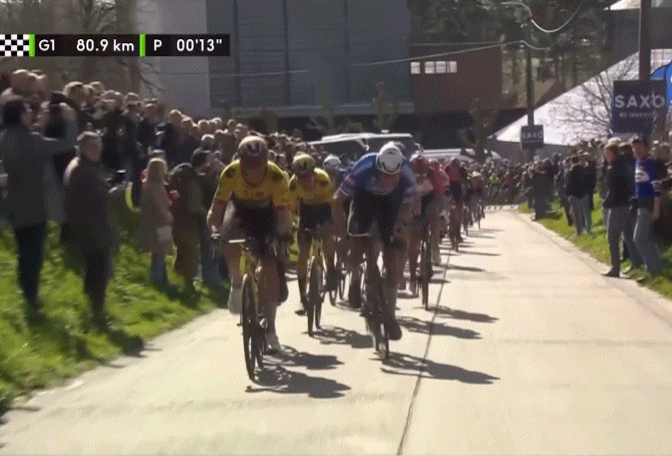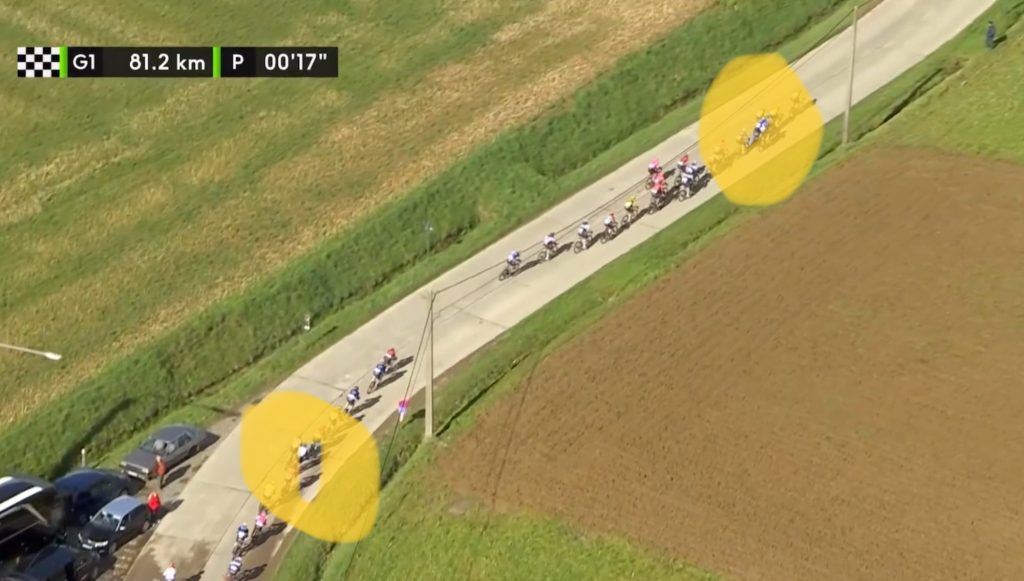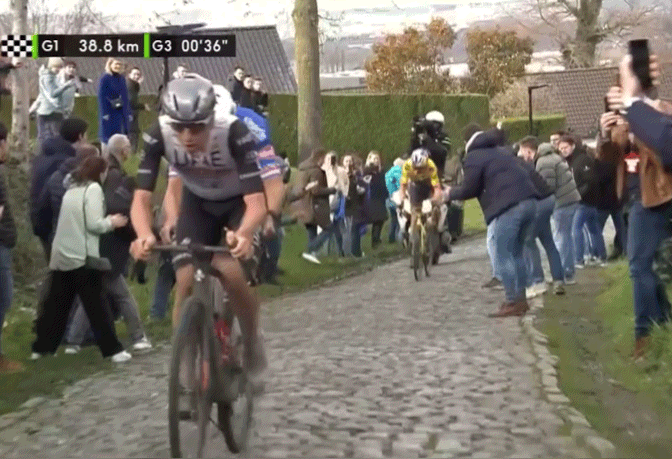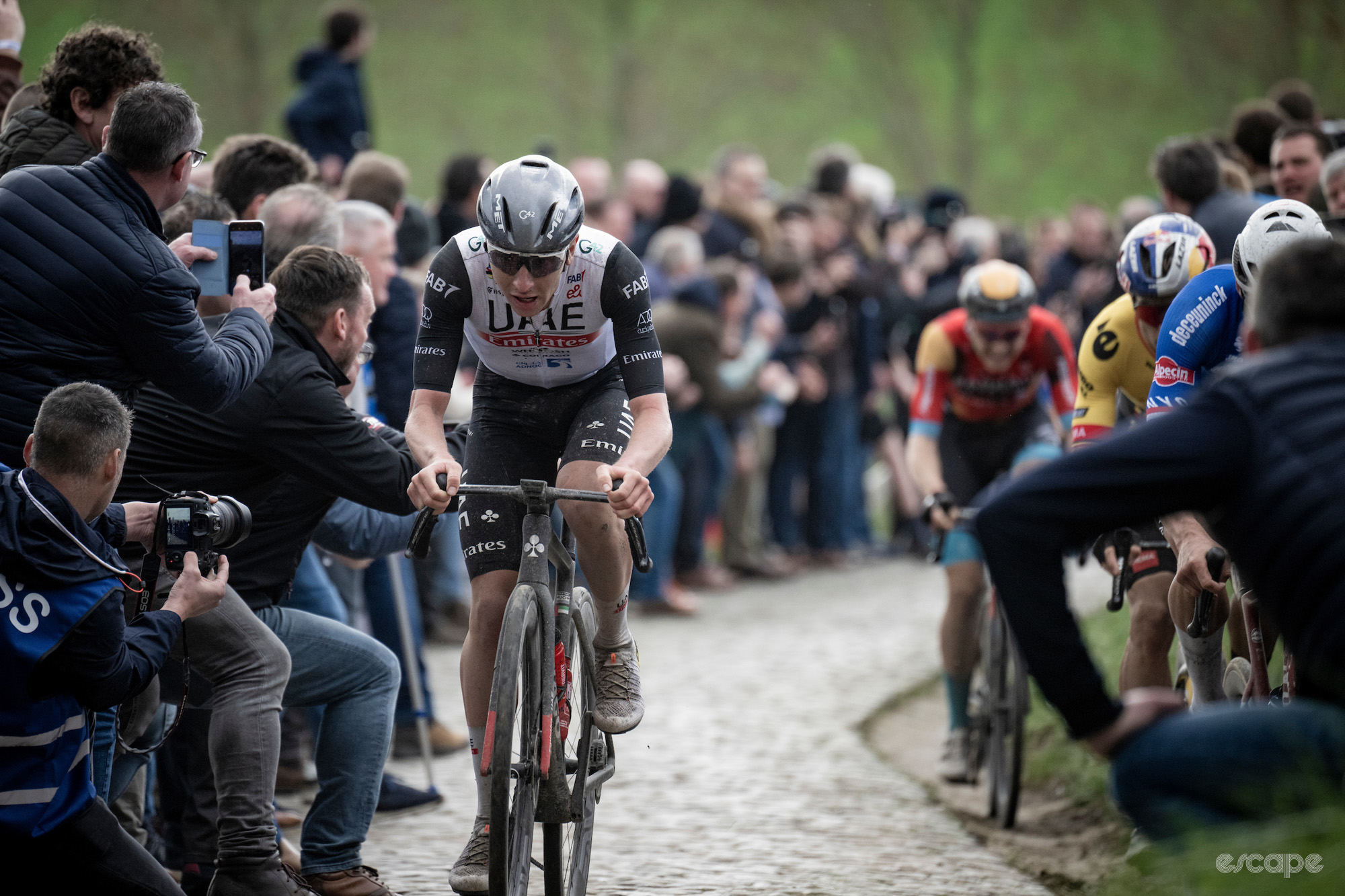It’s less dress rehearsal and more opening night, with real jitters and real crowds and a real podium at the end. Real winners and losers. A real opportunity to test tactics, too, and to make needed adjustments after failure.
E3 Saxo Classic is known as the mini Flanders and, nine days out from the real thing, it’s as important a mental and tactical tuneup as it is a physical one. Even more so for the likes of Tadej Pogačar, who finished third of the front three on Friday behind E3 winner Wout van Aert and second-place Mathieu van der Poel. Mistakes were made in Pogačar’s race day, energy was used when it didn’t need to be. If he wants to win Flanders then he can’t make them again.
“No such mistakes next Sunday,” as he said himself.
So where did he go wrong?
The leadup to the Taaienberg was less than ideal. The cobbled climb came with nearly 80 kilometers to go, but that doesn’t mean it isn’t crucial.
“It was a bit hectic with the positioning,” Pogačar said afterwards. “I don’t do these races as often, I have to get used to it. I was not in the best position, I was close to the front but not where I was supposed to be, so I lost a little bit of energy.”
Van der Poel, the most aggressive of the final trio, perhaps emboldened by winning the most recent monument and more willing to take a few chances, or simply as an homage to Mr. Taaienberg himself, Tom Boonen, chose that point as the first to rip the race in two. He entered the uphill cobbled section at the lead of the peloton, put his head down, and pulled clear. By the top, only Van Aert sat on his wheel.

Where was Pogačar? About 25 wheels back. Not terrible positioning, by Grand Tour standards. Awful positioning by classics standards. Before the group even hit the climb Pogačar was behind a small split, and he had to make up ground all the way up the Taaienberg. According to Strava, he went up the climb 6 seconds slower than Van Aert and Van der Poel, weaving through other riders. He started ~25th and came over the top ~8th. That’s a lot of energy.

Van Aert and Van der Poel came over the top with a slender but significant lead. They rolled a few turns and slowly, Pogačar dragged a large group across. The Slovenian’s effort lasted almost twice as long as that of Van der Poel and Van Aert. Just over two minutes on the climb, then two more minutes pulling everything back together.
Where a stage of Catalunya has one or two key moments, usually predictably placed, E3 has a dozen. Flanders has two dozen. Some we can’t even see on television; you hear about them after, when riders gaze back at their day and, with the benefit of hindsight, pinpoint where and how things went sideways.
Clearly, Pogačar’s Taaienberg effort wasn’t enough to take him out of contention completely. For many riders, it would have been. But he was still able to make all the decisive splits in the next 70km, from the slow-motion gaps that formed on the Boigneberg at 68 km to go to the final passes up the Paterberg and Kwaremont.
The problem for Pogacar was that he needed to attack. The finale of E3 is flat; other than the slim chance of playing van der Poel and Van Aert against each other, he was doomed to third place. He will run into the same problem in April, given Flanders’ 13 km of flat into Oudenaarde. At E3, his opportunities were limited and his legs, perhaps due to the Taaienberg efforts, weren’t good enough to go free.
In terms of terrain, his strengths versus the other two are greatest the steeper and longer the climb. The Oude Kwaremont was a good one, and he briefly removed Van Aert from the trio there. Karnemelkbeekstraat, peaking an 18%, was an opportunity. He didn’t use it. The Tiegemberg, a paved climb 20km from the finish, was the last shot. Pogačar didn’t really try on any of them. He looked slightly cooked.

Can the difference between solo victory and third place be found in the enormous effort he had to put in over the top of the Taaienberg? It’s never that simple. For a rider of his caliber, there is some room for error at a race like E3. You could argue he got away with it on Friday, making the final move despite himself.
There is no room for error at Flanders. He had good legs, he said. But there was one mistake; one he can’t make again if he wants to win next Sunday.
What did you think of this story?

